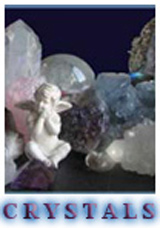
Belief - the Miracle of the Wine
At the heart of Jesus’ teaching was the power of belief. If there is no belief in the spiritual world, then you have only the material world. If you cannot believe in the spiritual God, then you cannot believe in the spiritual nature of the material world. A spiritual God is unseen, unheard and untouchable. It is something we perceive in our hearts, minds and experience. So with no belief there can be no relationship and we can receive and give nothing. In the material world ‘seeing is believing’. In the spiritual world believing is seeing. In the material world we seek the meaning of life and in the spiritual world we seek life in the meaning.
Nothing Could Have Been a More Dramatic Demonstration of the Power of Belief than Jesus’ Miracle at the Wedding at Cana
Jesus spied an opportunity to demonstrate to people that it is our self-consciousness that prevents us from believing in God and spirit. Our self tells us that it is our senses that inform us of our environment and so our belief in what is reality. We actually believe what our self tells us to believe - and the self does not like God and spirit. So our self is the culprit who provides 'our prison of non-belief'. Jesus here shows to His disciples in a 'private miracle' that it is in fact belief, not proof, fact or our senses, that provides us with reality.

Jesus is invited to a wedding along with His mother and disciples (as reported by John). Jesus’ mother told Jesus that the wine had run out. This would have been an emergency and a great faux pas on the part of the hosts. When Mary asks her son for help, Jesus rebukes His mother with the words, “You must not tell me what to do, my time has not yet come.” (John 7:6) Here Jesus is informing His mother of His authority as Son of God and His time is from now on His own until His time or death comes. He has limited time left. His mother gives away her relationship with Him by immediately subjugating herself to Him and saying to a servant, “Do whatever he tells you” (John 2:5). As I said earlier this mother/son relationship would have been unusual, even unique. Mary is a mother who has no earthly feelings for her son, only spiritual, in that she believes he is the Son of God. She cannot have both selfish feelings and believe He is God’s Son. She cannot serve two masters.
Jesus Tells the Servants to Fill Six Stone Water Jars with Water
He asks them to draw out some water and take it to the man in charge of the feast. This may have been in a goblet or poured from a jug into His goblet. People would already have had a few glasses to have finished all the wine. There probably would have been some residue of the wine in people’s goblets. It may have been shadowy and dark as houses were dark and cool even in the daytime. These factors may have contributed to the water being contaminated with a little wine flavour, or dulled and blurred the normally acute senses. However, I believe that even without these factors, it is natural to fool the senses very easily if a person completely believes that you are serving Him wine. I have experienced this myself. Once I picked up a cup of coffee, completely believing it to be tea. I was amazed to begin to drink it for a minute or so actually tasting tea until I realised that I had been fooled or had fooled myself.
The host would have had absolutely no reason to believe that He was drinking anything other than wine. There is also a natural urge to please the hosts and guests; a heady mixture of emotions that drives an illusion onwards. Even if someone did think I’ll of the wine they kept it to themselves. This would be a natural unconscious reaction to agree with the host not just out of politeness but to go along with the sense of the occasion and its fellowship. There is also a closer similarity between the smooth taste of a good wine and sweet water, particularly if there is a twist or more of wine flavour in the goblet already. When the master proclaims the wine is excellent, this compounds the collective belief of the party.
So the Self Is the Culprit
It is also the culprit when it comes to not believing in the God within us. It is there but the self tells you it is not. Religious people may be dismayed at Jesus turning a trick, but it is not a trick. He is teaching a very profound lesson about human beings that sets us aside from the animals. It is that belief is everything. Our views, opinions, perceptions and even our senses are controlled by what we believe or more importantly what we choose to believe. It is not our senses that control what we believe but what we believe ultimately controls our senses. We think it is our senses that dictate to us what is true or real but in fact it is the other way around. It is the self that dictates to the senses what is true or real. If all our senses tell us that a road is flat, the road is only flat if we believe this information. If we do not believe this then the road will not be flat to us, whatever the reality is.
Our Greatest Obstacle Lies in Our Unbelief Not a Lack of Information from Our Senses
It is something very simple and basic but easily overlooked because our daily acceptance and belief of things is so natural and automatic we are not aware of this fact. We are not aware of what we choose not to believe. Jesus is incredibly intuitive in showing this exclusively to His disciples (along with the servants they were the only ones to know that it was water being served) so early on in His mission. It is His first lesson because without understanding the nature and power of belief, belief in the spirit and knowledge of reality is impossible. So any relationship with God is also impossible. It is all a consequence of free will. It is only with our free will that we can choose to see or not see, believe or not believe.
It also demonstrates another lesson, which Jesus was keen to teach, which is that we complicate our lives needlessly with better and better things in order to find happiness when real contentment is within us in our belief. We often only perceive or believe things to be better.
About the Author
Martin M Dotson, a content writer at the essay writing service. He is keen on reading detective novels and learning foreign languages. So he features a dream to go to all countries and meet new people so as to urge conversant in other cultures.
Disclaimer:
The above guest post is published based on the premise that it will be helpful and informative. The opinions made within it are those of the author and not of sunnyray.org. The links you may find within this post do not necessarily imply our recommendation or endorsement of the views expressed within them.















